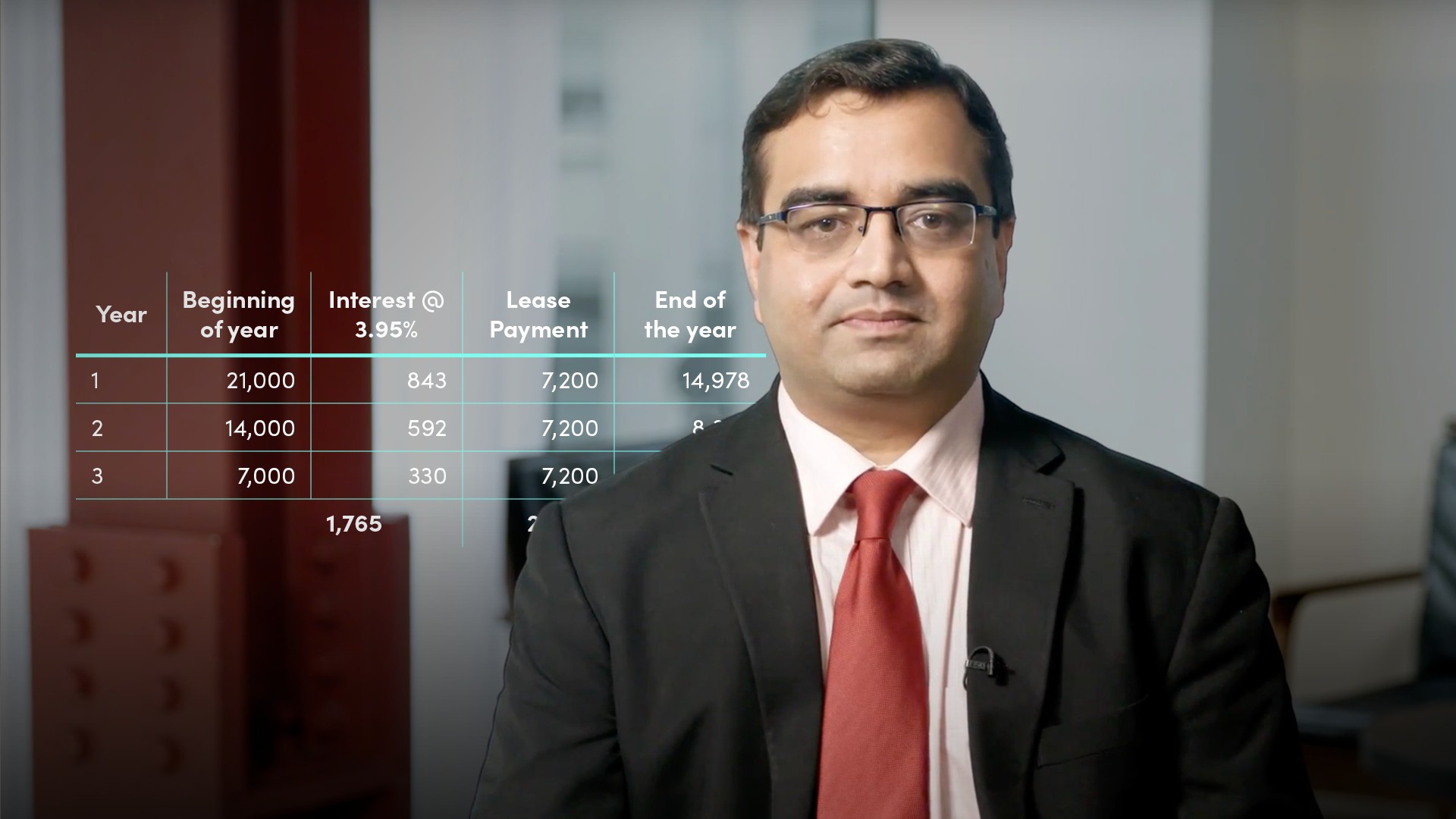
IFRS 16 Lease Classification

Saket Modi
20 years: Chartered accountant & educator
In the third part of this series, Saket provides an example to explain the application of the definition of lease in IFRS 16. It includes consideration of substantive vs protective rights in determining whether a contract is a lease.
In the third part of this series, Saket provides an example to explain the application of the definition of lease in IFRS 16. It includes consideration of substantive vs protective rights in determining whether a contract is a lease.
Subscribe to watch
Access this and all of the content on our platform by signing up for a 7-day free trial.

IFRS 16 Lease Classification
4 mins 51 secs
Key learning objectives:
Using the examples, identify what constitutes as an IFRS 16 Lease
Overview:
In this video, Saket outlines two examples, first an oil company entering into a contract with a ship-owner, and secondly, where a coffee company enters into a contract with an airport operator. In both examples, whether the contract meets the definition of a lease is highlighted.
Subscribe to watch
Access this and all of the content on our platform by signing up for a 7-day free trial.
Using Example 1, Is the contract an IFRS 16 Lease, and if so, why?
Yes, this contract is an IFRS 16 Lease.
- The tanker is an identified asset which the Oil company has the right to use for 15 years
- The Oil company has the right to direct the use of the tanker by having the ability to make decisions about when and to which ports the tanker sails and the oil to be transported
- This gives the oil company the right to obtain substantially all of the benefits from the use of the identified asset (the tanker)
- The contractual restrictions on the products that can be transported are protective rights, as opposed to substantive rights of the ship-owner
- The crew and maintenance of the ship are non-lease or service components
Example 2: A coffee company enters into a contract with an airport operator to use space in the airport to sell its goods for a three-year period. The coffee company is the customer and the airport operator is the supplier. The contract states the amount of space and that the space may be located at any one of several boarding areas within the airport.
The Supplier has the right to change the location of the space allocated to the Customer at any time during the period of use. There are minimal costs to the Supplier associated with changing the space for the Customer. The Customer uses a kiosk (that it owns) that can be moved easily to sell its goods. There are many areas in the airport that are available and that would meet the specifications for the space in the contract.
Using Example 2, Is the contract an IFRS 16 Lease, and if so, why?
No, this contract is not an IFRS 16 Lease.
- There is no identified asset. The customer controls its owned kiosk, however, the contract is space in the airport, and this space can change at the discretion of the supplier
- The supplier would benefit economically from substituting the space. There is minimal cost associated with changing the space
- Since the supplier has substantive right to substitute the space, this is not an IFRS 16 Lease
Subscribe to watch
Access this and all of the content on our platform by signing up for a 7-day free trial.

Saket Modi
There are no available Videos from "Saket Modi"



























